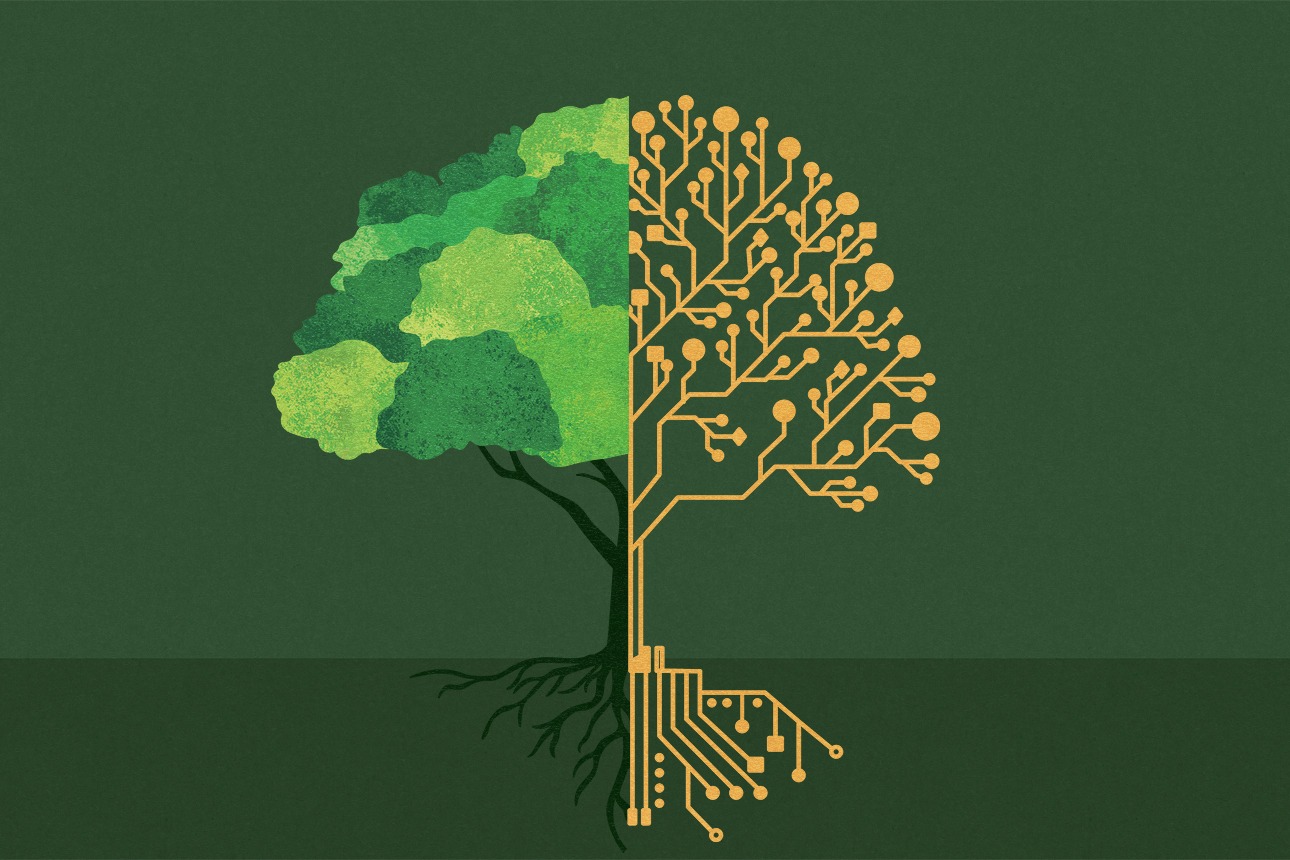
Quantum Computing: How Will It Affect Our Daily Life?
Quantum computing harnesses quantum mechanics to revolutionize computing power, promising faster problem-solving in fields like medicine, finance, and climate science. While not yet in everyday gadgets, it impacts services behind the scenes and demands new security measures. Despite technical challenges, its potential to transform industries and daily life is immense, opening doors to innovations previously unimaginable and gradually becoming more accessible through cloud platforms.
✨ Raghav Jain

Introduction
Quantum computing is no longer just a concept for scientists—it’s rapidly becoming a technology that could transform many aspects of our daily lives. Unlike classical computers, which use bits (0s and 1s), quantum computers use quantum bits or qubits, which can be in multiple states at once thanks to principles like superposition and entanglement.
This revolutionary approach promises to solve complex problems far beyond the reach of today’s computers, affecting fields such as medicine, security, transportation, and even the way we shop and communicate.
In this article, we’ll explore what quantum computing is, how it differs from traditional computing, and most importantly, how it might impact you—your work, your health, your privacy, and your everyday technology. Quantum computing represents a revolutionary leap in computational power, fundamentally different from the classical computers we use daily. While classical computers rely on bits, which can be either a 0 or a 1, quantum computers leverage the principles of quantum mechanics – specifically superposition and entanglement – to create qubits. A qubit can represent a 0, a 1, or both simultaneously (superposition), and multiple qubits can become linked in a way that their states are dependent on each other, even when physically separated (entanglement). This allows quantum computers to process vast amounts of information in parallel and explore complex problem spaces exponentially faster than even the most powerful supercomputers today. This incredible power isn't about making your phone faster or your Netflix stream smoother; instead, it's about solving problems that are currently intractable for any classical machine, opening doors to scientific breakthroughs, technological advancements, and societal transformations that will, in turn, indirectly but profoundly affect our daily lives in ways we are only just beginning to comprehend. We are currently in the "Noisy Intermediate-Scale Quantum" (NISQ) era, where quantum computers have tens to hundreds of qubits, demonstrating "quantum advantage" (outperforming classical computers on specific, narrow tasks) but are not yet robust or large enough for broad commercial applications. However, the pace of development is accelerating, and the impact, while not immediate for the average consumer, is expected to ripple through various sectors, eventually touching every facet of our existence.
Transformative Impact on Key Industries:
The primary impact of quantum computing will first be felt in highly specialized fields before trickling down to the general public. One of the most significant areas is drug discovery and materials science. Simulating molecular interactions at a quantum level is incredibly complex, virtually impossible for classical computers. Quantum computers, however, are inherently suited for this task because quantum mechanics is the "operating system" of the universe at the atomic scale. This means they could rapidly accelerate the development of new drugs, leading to faster cures for diseases like cancer, Alzheimer's, and even new antiviral treatments for future pandemics. Imagine personalized medicines tailored precisely to an individual's genetic makeup, or breakthroughs in understanding complex biological processes like protein folding, which could unlock new treatments. Similarly, quantum computing could revolutionize materials science, enabling the design of novel materials with unprecedented properties – perhaps lighter, stronger alloys for aerospace, super-efficient catalysts for clean energy production, room-temperature superconductors that would revolutionize power transmission, or advanced batteries that charge faster and last longer for electric vehicles and mobile devices. These innovations would not only create new products but also address critical global challenges like climate change and resource scarcity.
Another monumental shift will occur in cybersecurity. Many of our current encryption standards, such as RSA, rely on the mathematical difficulty of factoring large numbers, a task that even the fastest classical computers would take billions of years to complete. However, quantum algorithms like Shor's algorithm could factor these numbers in minutes or hours, effectively rendering much of today's internet security, including financial transactions and sensitive government data, vulnerable. This threat has prompted a global race to develop "post-quantum cryptography" (PQC) – new encryption methods that are resistant to quantum attacks. While this might sound alarming, the transition to quantum-resistant encryption will eventually make our digital interactions more secure than ever, albeit with a period of intense migration and potential vulnerabilities during the transition phase. This push for quantum-safe security will directly impact how our online banking, communications, and personal data are protected, ensuring the integrity of our digital lives in a quantum-enabled future.
Artificial Intelligence (AI) and Machine Learning (ML) are also poised for a significant transformation. Quantum computers can process massive datasets and identify intricate patterns far more efficiently than classical computers, potentially leading to a new era of AI. This could manifest as more sophisticated AI models that learn faster, make more accurate predictions, and perform complex tasks with unprecedented capability. For daily life, this could mean highly personalized recommendation systems that truly understand your preferences, more intuitive and capable virtual assistants, advanced fraud detection that instantly identifies anomalies in financial transactions, or even intelligent traffic management systems that eliminate congestion by optimizing routes in real-time across entire cities. Quantum-enhanced AI could also accelerate the development of truly autonomous vehicles, making transportation safer and more efficient. The synergy between quantum computing and AI could lead to breakthroughs in areas like natural language processing, making human-computer interactions feel more natural and intuitive.
Impact on Optimization and Finance:
Quantum computing's ability to solve complex optimization problems will have widespread implications. Many real-world problems, from logistics and supply chain management to financial modeling and urban planning, involve finding the best solution among an astronomical number of possibilities. Classical computers can only approximate solutions for such problems due to computational limitations. Quantum computers, however, can explore these vast solution spaces more efficiently. For instance, logistics and supply chain optimization could see radical improvements, leading to more efficient delivery routes, reduced shipping costs, and faster delivery times for goods ordered online, impacting everything from the cost of consumer products to the speed of medical supply distribution in emergencies.
In finance, quantum computers could revolutionize portfolio optimization, risk assessment, and fraud detection. They could quickly analyze complex market data, identify subtle patterns, and execute high-frequency trading strategies with unprecedented speed and accuracy, potentially leading to more stable and efficient financial markets. While this might seem distant, the indirect benefits could include more robust investment strategies for retirement funds, more accurate credit risk assessments that make lending fairer, and more effective systems to prevent financial crime, protecting individual savings and investments.
Beyond the Direct Applications: The Ripple Effect
It's important to understand that quantum computers are unlikely to replace your smartphone or laptop. They are not general-purpose machines designed for Browse the web or running word processors. Instead, they will operate as powerful backend processors, accessible via cloud services, solving the "hardest problems" for various industries. The benefits will then cascade down to the end-user. For example, you won't own a quantum computer to design a new battery, but the quantum-designed battery will power your electric car for longer. You won't use a quantum computer to secure your personal photos, but the post-quantum cryptography developed by quantum means will keep your cloud storage safe.
The development of quantum computing also poses workforce and ethical challenges. A new generation of quantum engineers, programmers, and scientists will be needed, driving demand for specialized education and training. Ethically, we will need to grapple with questions of access, ensuring that the benefits of this transformative technology are distributed equitably and do not exacerbate existing societal inequalities. The potential for misuse, such as in advanced surveillance or warfare, also necessitates careful consideration and international collaboration on regulatory frameworks.
What is Quantum Computing?
Quantum computing uses the strange, fascinating rules of quantum mechanics to process information. Instead of bits, it uses qubits that can exist in multiple states simultaneously. This allows quantum computers to perform many calculations at once, making them extremely powerful for certain types of problems.
Key concepts:
- Superposition: Qubits can be 0, 1, or both at the same time.
- Entanglement: Qubits become linked so the state of one instantly influences the other, even at a distance.
- Quantum Interference: Helps quantum computers amplify correct answers and cancel out wrong ones.
These features enable quantum computers to solve complex tasks like drug discovery, cryptography breaking, and optimization problems faster than classical computers.
Potential Daily Life Impacts of Quantum Computing
1. Healthcare and Medicine
- Faster Drug Discovery: Quantum simulations could model molecules and reactions in ways classical computers cannot, drastically reducing the time to find new medicines or vaccines.
- Personalized Treatment: Quantum algorithms can analyze genetic data at scale, tailoring treatments specifically for your body.
- Early Disease Detection: Enhanced data analysis from medical scans and tests will improve accuracy and early diagnosis.
2. Cybersecurity and Privacy
- Stronger Encryption: Quantum computers will break many current encryption methods, but they will also enable new quantum-safe cryptography to protect your data.
- Secure Communication: Quantum key distribution offers theoretically unbreakable communication channels, making hacking much harder.
3. Financial Services
- Optimized Trading: Quantum algorithms can analyze markets and predict trends faster, potentially improving investment decisions.
- Fraud Detection: More sophisticated models will spot fraudulent activity instantly, protecting your money.
4. Transportation and Logistics
- Traffic Optimization: Quantum computing can improve real-time traffic flow, reducing jams and travel time.
- Efficient Delivery Routes: Companies like delivery services and airlines will plan routes faster and more efficiently, potentially lowering costs and carbon footprints.
5. Artificial Intelligence & Machine Learning
- Better Data Analysis: Quantum-enhanced AI could process vast amounts of data with increased speed and accuracy, improving virtual assistants, recommendation systems, and automation.
- Natural Language Processing: Interactions with devices (like voice assistants) will become more natural and context-aware.
6. Material Science and Energy
- New Materials: Discovering superconductors or new batteries that can store more energy and charge faster.
- Climate Modeling: Better prediction of climate change effects and weather, helping in planning and disaster prevention.
When Will Quantum Computing Affect Our Daily Lives?
While research and development are rapidly advancing, fully practical quantum computers are still in their infancy. Experts estimate it could take 5 to 20 years before quantum computing becomes widely accessible for everyday applications.
However, hybrid quantum-classical systems are already being tested in industries, and quantum cloud computing allows companies to experiment with quantum algorithms remotely.
How Can You Prepare for the Quantum Era?
- Stay Informed: Follow updates on quantum computing and related technologies.
- Focus on Cybersecurity: Update your knowledge about quantum-safe encryption methods.
- Develop Tech Skills: Learning basics of quantum algorithms or data science can be an asset.
- Advocate for Ethical AI: Quantum tech will boost AI; staying engaged with ethics and privacy is important.
- Support Sustainable Tech: Quantum computing can help solve big environmental problems—support green tech initiatives.
Common Myths About Quantum Computing: Busted!
“Quantum computers will replace classical computers completely.”
→ No, quantum computers will complement classical ones. For many tasks, classical computers remain more practical.
“Quantum computing is magic and instantly solves everything.”
→ It’s powerful but limited to certain problem types; it won’t solve all computational issues.
“Anyone can buy a quantum computer soon.”
→ Currently, quantum computers are large, expensive, and require specialized environments.
“Quantum computing will immediately break all online security.”
→ It’s a risk, but new quantum-resistant encryption is being developed to keep data safe.
Sample Daily Quantum Awareness Routine
Morning:
- Read a quick news update on quantum tech breakthroughs
- Reflect on one way tech affects your life now
Midday:
- Explore a beginner-friendly video or article on quantum computing
- Discuss with friends/family about tech changes
Evening:
- Consider digital security habits—are your passwords strong?
- Think about sustainable technology and your choices
Conclusion
Quantum computing stands to revolutionize many aspects of our daily lives—from health and security to transportation and AI. While the full impact is still unfolding, its potential to solve problems beyond classical computing’s reach is immense.
As consumers and citizens, being aware of these changes empowers you to adapt, learn, and even benefit from this exciting technology. Whether it’s through better healthcare, safer online privacy, or smarter city living, quantum computing’s future is intertwined with ours.
The quantum era is coming—start preparing today, stay curious, and embrace the possibilities it brings for a smarter, more connected world.
Q&A Section
Q1:- What is quantum computing?
Ans :- Quantum computing uses principles of quantum mechanics, like superposition and entanglement, to process information in qubits, enabling computations far beyond classical computers.
Q2:- How is quantum computing different from classical computing?
Ans :- Unlike classical bits that are either 0 or 1, qubits can be both simultaneously, allowing quantum computers to solve complex problems much faster.
Q3:- How will quantum computing impact cybersecurity?
Ans :- It can break many current encryption methods, forcing development of new quantum-safe cryptography to protect data and privacy.
Q4:- Can quantum computing improve healthcare and medicine?
Ans :- Yes, it can simulate molecular interactions precisely, speeding drug discovery and personalized medicine development.
Q5:- Will quantum computing affect everyday devices like smartphones or laptops?
Ans :- Not directly soon, but quantum advancements will improve cloud computing and AI services accessed by everyday devices.
Q6:- How might quantum computing change financial services?
Ans :- It can optimize complex financial models, risk analysis, and fraud detection with higher speed and accuracy.
Q7:- What role will quantum computing play in artificial intelligence?
Ans :- It can accelerate machine learning algorithms, enabling AI to analyze larger datasets and learn faster.
Q8:- How could quantum computing influence climate modeling and environmental science?
Ans :- Quantum computers can process vast environmental data to improve climate predictions and develop sustainable technologies.
Q9:- Is quantum computing accessible to the general public?
Ans :- Currently, it is mainly used by research labs and large corporations, but cloud-based quantum computing services are making it more accessible.
Q10:- What challenges exist in developing quantum computing technology?
Ans :- Technical issues like qubit stability, error correction, and high costs currently limit widespread use, but research is progressing rapidly.
Similar Articles
Find more relatable content in similar Articles

3D-Printed Organs: Are We Clos..
3D-printed organs are at the f.. Read More

Virtual Reality Therapy: Heali..
Virtual Reality Therapy (VRT) .. Read More

The Hidden Energy Cost of Stre..
As digital streaming and onlin.. Read More

The Rise of Digital Twins: You..
Digital twins are transforming.. Read More
Explore Other Categories
Explore many different categories of articles ranging from Gadgets to Security
Smart Devices, Gear & Innovations
Discover in-depth reviews, hands-on experiences, and expert insights on the newest gadgets—from smartphones to smartwatches, headphones, wearables, and everything in between. Stay ahead with the latest in tech gear
Apps That Power Your World
Explore essential mobile and desktop applications across all platforms. From productivity boosters to creative tools, we cover updates, recommendations, and how-tos to make your digital life easier and more efficient.
Tomorrow's Technology, Today's Insights
Dive into the world of emerging technologies, AI breakthroughs, space tech, robotics, and innovations shaping the future. Stay informed on what's next in the evolution of science and technology.
Protecting You in a Digital Age
Learn how to secure your data, protect your privacy, and understand the latest in online threats. We break down complex cybersecurity topics into practical advice for everyday users and professionals alike.
© 2025 Copyrights by rTechnology. All Rights Reserved.